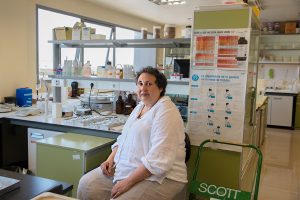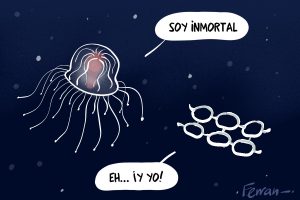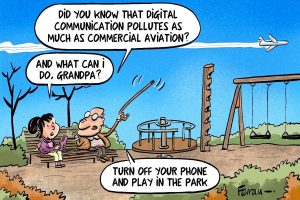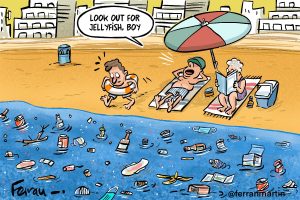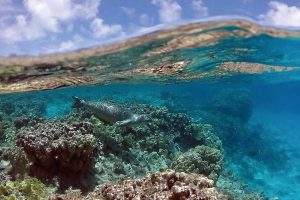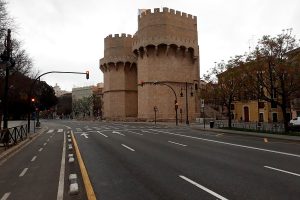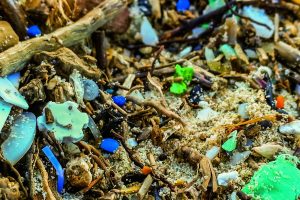Search
Yolanda Picó, Full Professor of Nutrition and Bromatology at the University of Valencia, analyses emerging pollutants, both their concentrations in the environment and their long-term effects on biota.
Wild animals can be environmental watchdogs that inform us about antimicrobial resistance.
Much of the plastic debris fractures into micro- or nanoparticles called microplastics that can be ingested by marine organisms.
Contact with nature generates measurable benefits for people’s psychological and physiological health.
The jellyfish Turritopsis dohrnii is capable of rejuvenation. Ferran Martin reminds us that, unfortunately, it is not the only «immortal» thing we can find in the ocean.
Digital pollution is invisible, but its impact on the environment is significant. This week's cartoon by Ferran Martín takes a look at it.
Urban waste generates pollution that cannot be seen with the naked eye but has negative impacts on aquatic ecosystems, which are particularly vulnerable to it.
Is the planet benefiting from a halt in human movement? Is pollution decreasing? Experts from the Polytechnic University of Valencia and the University of Valencia reflect on the environmental impact of confinement policies.
Microplastics constitute one of the main challenges facing environmental and conservation policy agendas.
- 1
- 2

